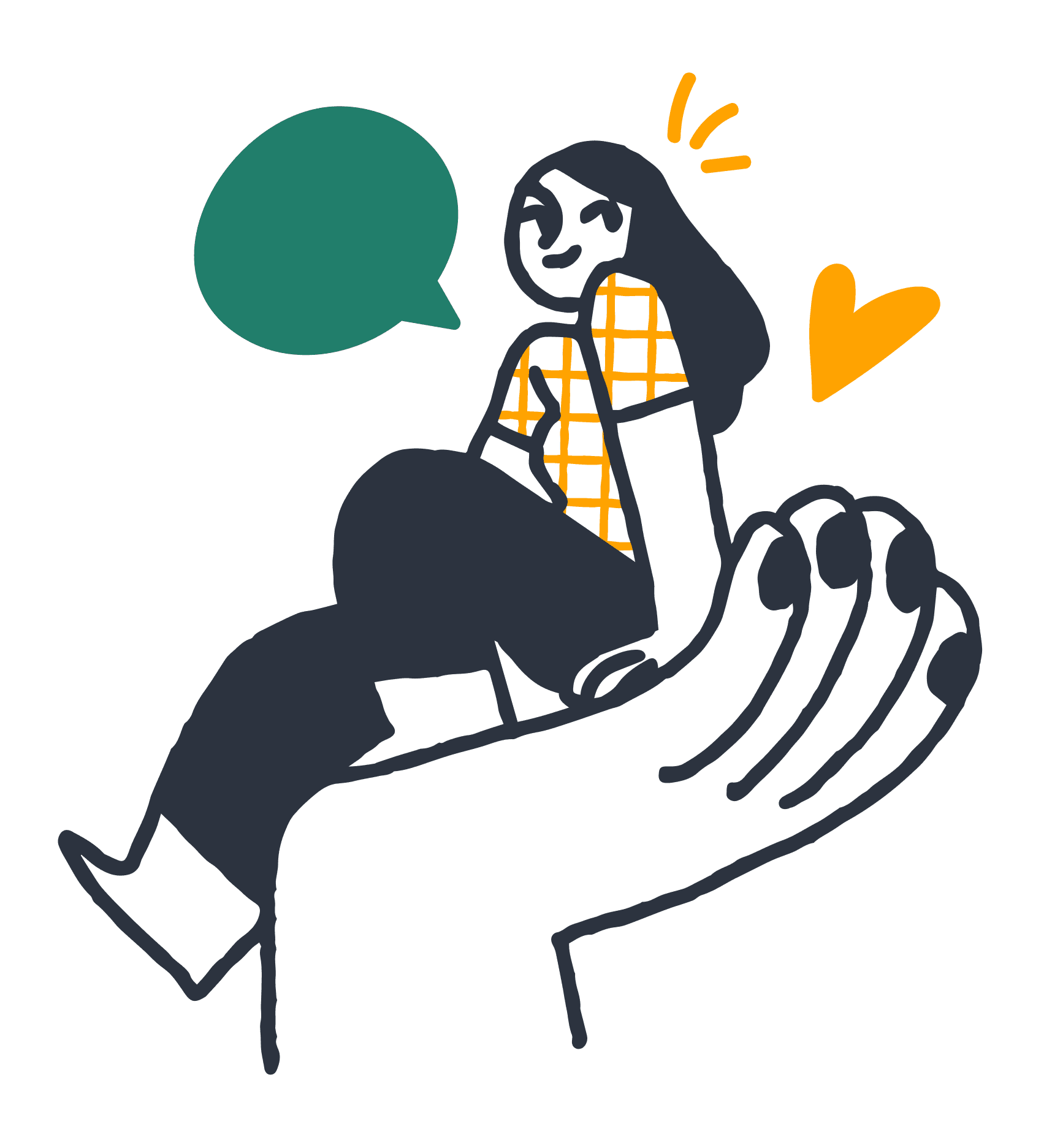It’s okay if you’re not sure what your child needs
As you read this, you may not be able to determine if your child is just going through a phase or if they’re struggling with a bigger problem. Or maybe you’re sure about what you see, you just don’t know how to help. Either way, you don’t have to figure it out alone.
Care with Brightline starts with a diagnostic evaluation, which is a structured conversation between you, your child, and a Brightline clinician. It helps us gain a clear understanding of what’s going on in your child’s world so we can determine the right ways to help. In the follow-up session, you’ll get answers, a care plan recommendation, and relief. Depending on what your child is experiencing, they may begin care in one of Brightline’s therapy programs:
General Therapy
Persistent low mood, lack of motivation, withdrawal
Trauma and stress
Physical symptoms without an identified medical cause
Sustained difficulties with everyday tasks
OCD Program
Repeated or ritualized behaviors that are driven by anxiety, fear, or disgust
Overdoing things more than is needed
Fear of not doing something “just right”
Avoiding things they need or want to do
Intrusive thoughts about any number of topics
Anxiety Program
Worries and fears, difficulty concentrating
Physical symptoms (like racing heart)
Feeling nervous, restless, edgy, afraid, or fearful
Avoidance of things they need or want to do
ADHD Program
Difficulties paying attention
Difficulty sitting still
Distracting or disruptive behaviors
Impulsive actions
Disruptive Behaviors Program
Tantrums and other behavioral upsets
Impulsive actions
Troubling behaviors at school or with friends
Difficulty following directions
How do you know if your child needs therapy?
These are some of the signals, behaviors, and emotions that we see the most from kids who benefit from therapy. If you’re seeing some of these difficulties (or others) at home, we can help you understand why and address them.

Persistent low mood, difficulties coping with change, everyday asks, or emotions, thoughts or comments about wanting to hurt themselves
Worries and fears that affect daily activities, physical symptoms like a racing heart or muscle tension, feeling nervous or edgy, avoidance
Repeated or ritualized behaviors, overdoing things, intrusive thoughts, fears of not doing it “just right”
Difficulties sitting still or paying attention, talking excessively or exhibiting distracting behaviors outside the home
Tantrums or behavioral upsets, impulsive actions, difficulty following directions, behaviors that get them in trouble at home or school
